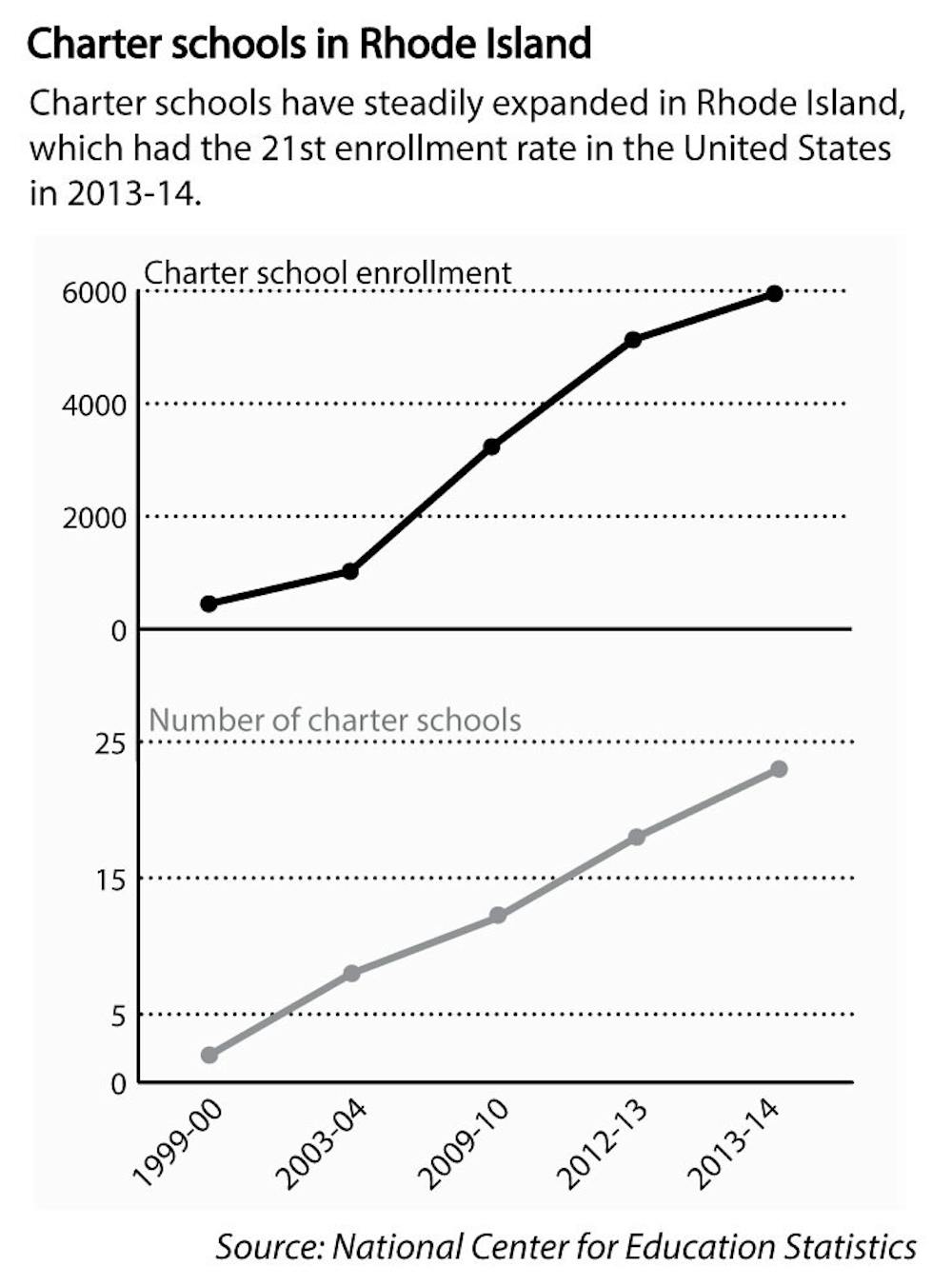President Donald Trump’s nominee for Education Secretary Betsy DeVos could seriously impact education in Rhode Island by privatizing public education or cutting federal grants used to help students pay for higher education, some advocates of federally-funded public eduation fear.
DeVos “is interested in privatizing public education, and we believe that public education is the underpinning of our democracy,” said Sarah Friedman, co-director and co-founder of the nonprofit Learning Community Charter School. She added that their school takes a stance against profiteering charter schools of the kind that DeVos may plan to expand.
Over her career, DeVos has supported taxpayer-funded and privately-run education, a departure from the current system of government-run and -regulated schools. According to National Public Radio, nearly 80 percent of charter schools in DeVos’s home state of Michigan — where she has worked to introduce charter schools — are run by for-profit companies. When asked in her Jan. 17 confirmation hearing, DeVos would not take a stance against cutting current public education funding or privatizing public education.
But Friedman argued that public education cannot be called public if it is “influenced by profit-making corporations or religiously-affiliated organizations … and that is very much (DeVos’s) agenda.”
The Learning Community said it is committed to the original intent of charter legislation, “which is to be incubators that support innovation within the larger public education system,” Friedman said. “Any move to privatize our public education system will fiscally … undermine the districts that we are supposed to be supporting,” Friedman said, adding that privatization will also make the charter sector “less publicly accountable.”
For The College Crusade of Rhode Island — a college access and success program for about 4,500 students every year — the biggest concern regarding DeVos is whether or not she would support Speaker of the U.S. House of Representatives Paul Ryan’s 2016 budget plan, calling for a 10-year freeze on spending increases to the Pell Grant program.
“Every Rhode Island student deserves the chance to learn and gain the skills they need to get ahead. The mission of the U.S. Department of Education is to give them that chance,” wrote U.S. Sen. Sheldon Whitehouse D-RI a member of the Health, Education, Labor and Pensions Committee, in a press release last Thursday. Whitehouse added that promoting quality education requires understanding the importance of Pell Grants, which can make higher education affordable for students hoping to pursue college.
“There are eight million students in this country from low- and modest-income families that rely on Pell Grants to pay for college,” said Andrew Bramson, president and CEO of The College Crusade of RI. “Tuition and room and board costs will continue to increase,” he said, arguing that DeVos should reject any cuts to the program.
Bramson added that Pell Grants are the largest source of aid most of his students receive. The grant is currently valued at a maximum $5,815 a year for those that receive a full award, which is granted to nearly all of The College Crusade’s students who enroll in higher education. Bramson explained that the purchasing power of the grant for attending a four-year institution has decreased from 70 to 30 percent since 1980. Losing the Pell Grant would leave students “out on a limb in terms of how they’re going to cover tuition, living expenses, books and materials.”
College Crusade receives a majority of its funds through the U.S. Department of Education’s grant program GEAR UP — Gaining Early Awareness and Readiness for Undergraduate Programs. Congress is slated to reauthorize the Higher Education Act — the law concerning federally-funded student aid programs — in the next year, which makes it “critical” for groups like College Crusade that Devos continues to support GEAR UP by including it in the act’s reauthorization if she is confirmed, Bramson said.
In terms of supporting student voices, the Providence Student Union, a youth-led organizing group, feels that DeVos is “kind of a question mark,” said Executive Director Zack Mezera. But the union recognizes DeVos’s “track record of undermining traditional education structures,” he added.
Mezera said the union is concerned not only for the direct changes DeVos could bring about — such as the Department of Education’s policy with vouchers — but also indirect changes that could upset individual states’ departments of education, which have been working on their own plans to implement the Higher Education Act, Mezera said. The Rhode Island Department of Education has already put together its own compliance plan, and Mezera said he worries DeVos’s changes could disrupt that work.
Under DeVos’s regulation powers, “she could take the plans that RIDE submits and put a big red “X” on it,” Mezera said, adding that months have already been spent on community forums and input sessions related to R.I.’s compliance.
For states that haven’t shown a strong regard for federal laws regarding education, DeVos could approve their plans “without reading into how they make interventions regarding student equity or racial disparities,” Mezera said. He added that Rhode Island can address these issues on a state level, but “some states need federal intervention.”





